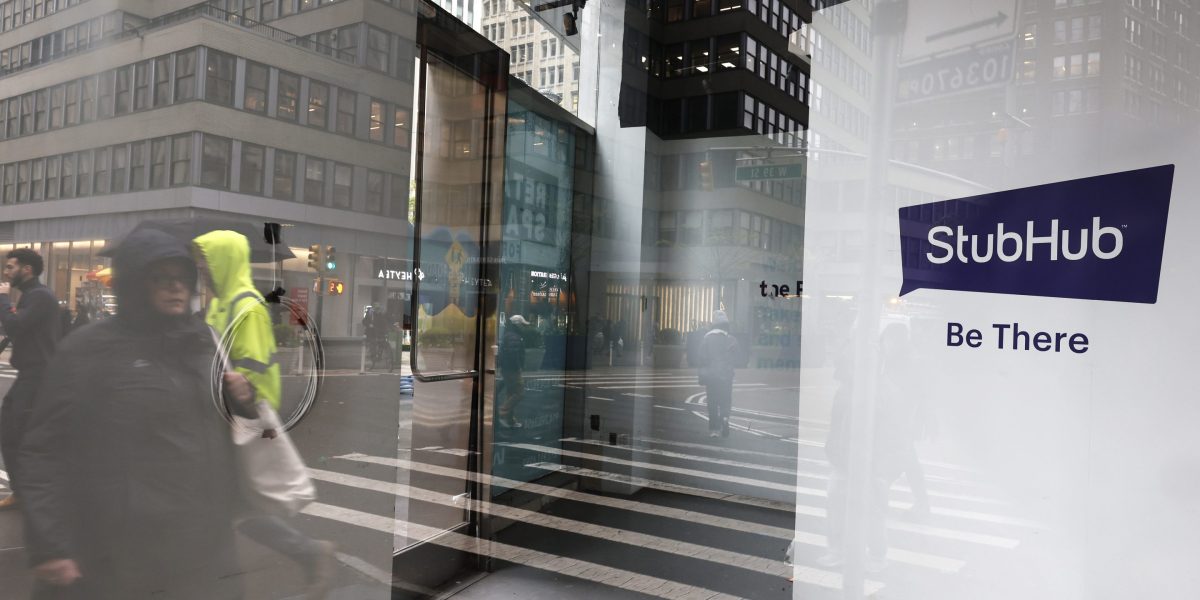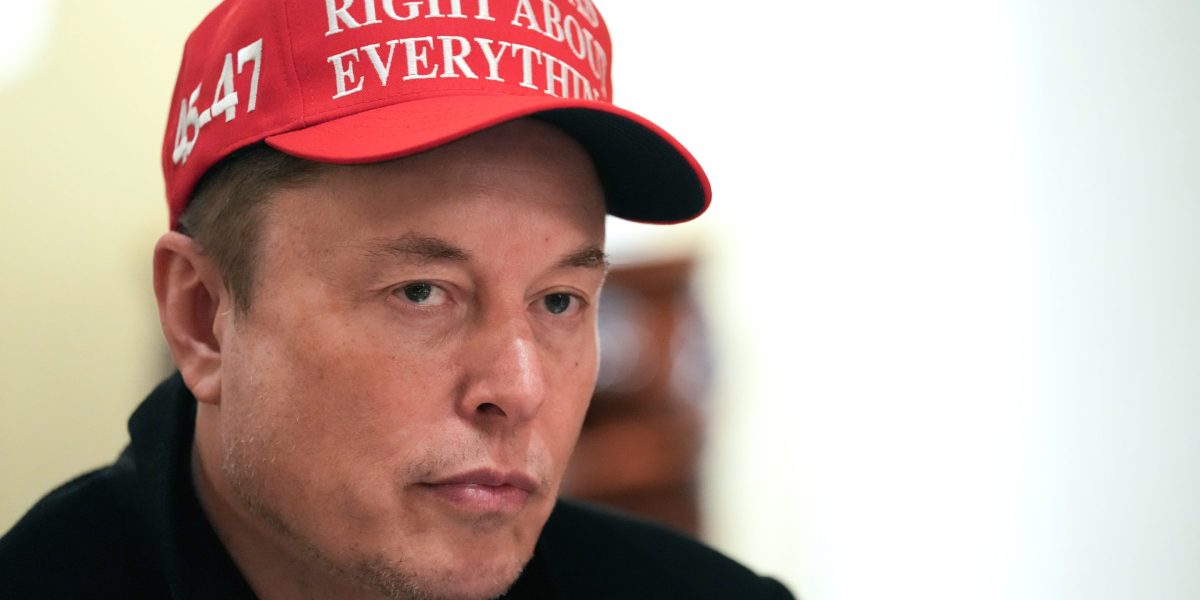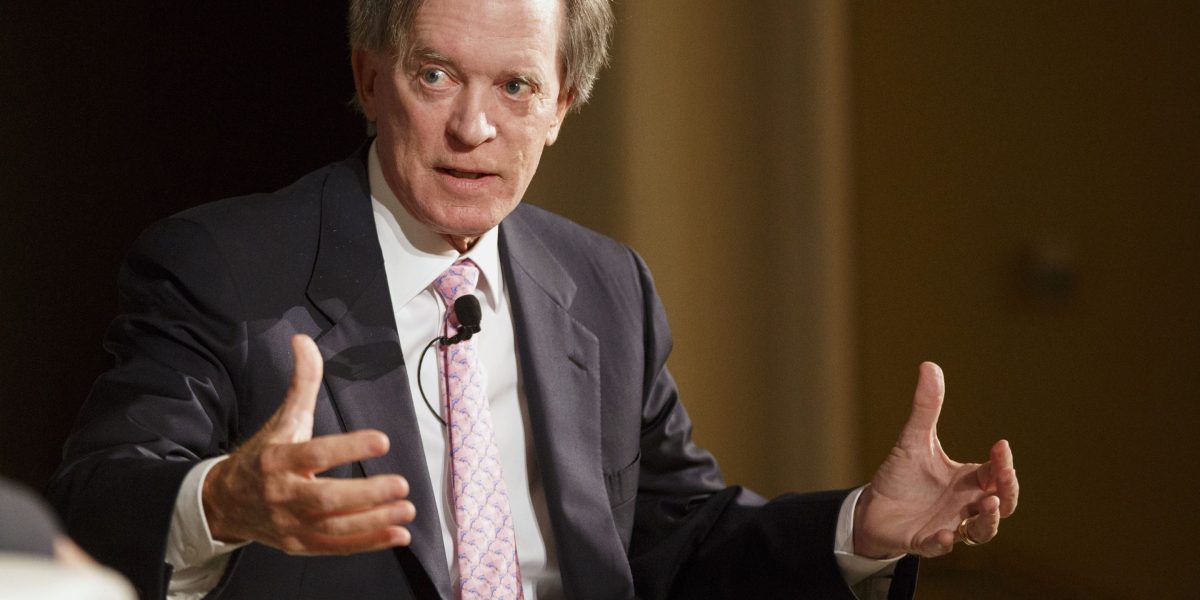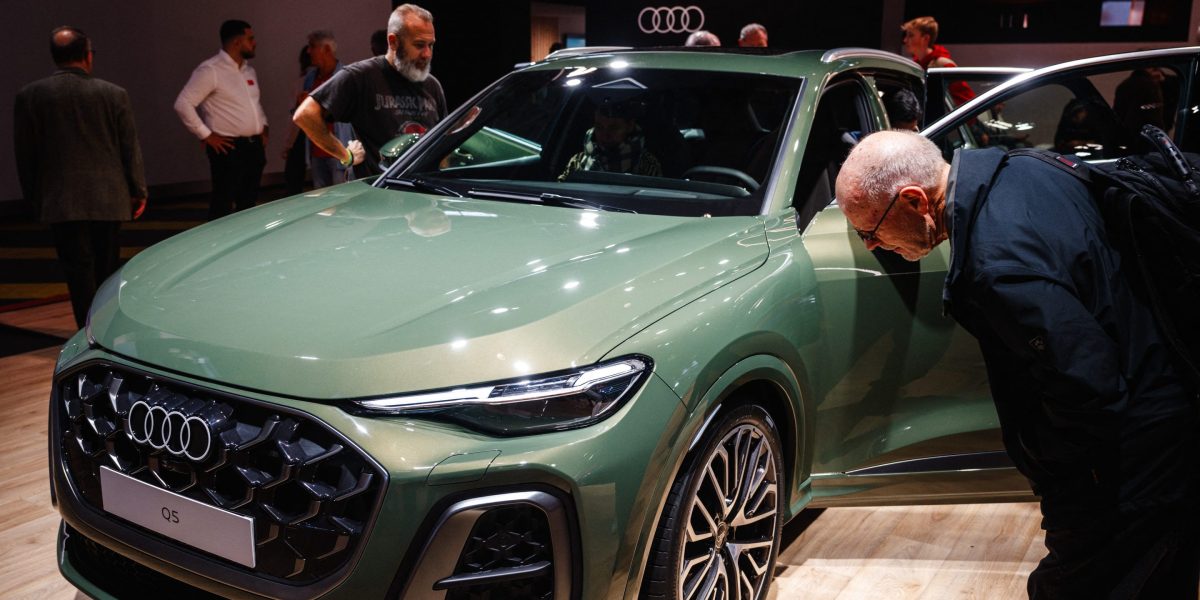The Audi Q5 is the German brand’s top-selling vehicle in the U.S. It’s also a prime example of how Donald Trump’s drastic reordering of global trade is wreaking havoc on automakers.
The president’s tariffs are hitting the $45,400 model thrice, rendering the sport utility vehicle unsellable, according to people familiar with the carmaker’s thinking, who declined to comment on the record.
There’s the 25% duty on imported autos and the non-U.S. parts they contain; the 25% levy on shipments from Mexico that Trump’s applied over border security; and a 2.5% fee for not complying with the free-trade agreement that Trump negotiated in his first term.
While automakers are still waiting for more guidance on the exact penalties they face, Audi is operating under the assumption that all three of those levies apply to the made-in-Mexico Q5, with duties totaling at least 52.5%, said the people, who weren’t authorized to speak publicly on the matter. Trump paused most so-called reciprocal tariffs for 90 days on Wednesday but kept in place trade measures targeting the auto industry.
“The Q5 is a nice car, but if they’re making it there, they can’t sell it” in the U.S., said Ambrose Conroy, chief executive officer of Seraph, a consultancy that works with carmakers and their suppliers.
The rising trade barriers are threatening sales and upending supply chains that automakers have built over decades. Jeep maker Stellantis NV is temporarily halting some production in Canada and Mexico, Ford Motor Co. is for now offering discounts, and General Motors Co. is boosting U.S. pickup output to counter the tariffs. Audi owner Volkswagen AG, which reported an almost 40% drop in first-quarter profit on Wednesday, plans to tack import fees on to the vehicles it ships into the U.S.
Read More: Carmakers Idle Plants, Rethink Prices as Trump’s Tariffs Hit
Volkswagen is among several global manufacturers that have invested in factories in Mexico in recent years to benefit from the country’s relatively low wages and free trade agreements with more than 50 countries, including the U.S. Audi’s San José Chiapa plant enabled the brand to better meet demand in the region and helped offset declining sales in China, where local manufacturers led by BYD Co. are taking over.
Audi has made more than 1 million Q5s at the site since production began in 2016. The mid-size SUV is by far its best-selling model in the U.S., accounting for around a third of the brand’s 42,710 deliveries in the first quarter. The San José Chiapa plant was envisioned as a global export hub, so Audi didn’t prioritize making the Q5 USMCA-compliant, the people said.
The vehicle is emblematic for how globalized automotive supply chains have become. Some of the Q5’s engines are sourced from Hungary, with transmissions shipped in from Germany, and dozens of local suppliers providing other components. The Q5 is then assembled and shipped to customers around the world — both to Europe and the U.S., which ranks among the most lucrative markets for SUVs.
That strategy was working fine until Trump introduced his tariffs on April 3. Just 2% of the Q5’s content is made in the U.S. or Canada, according to data collected by the U.S. National Highway Traffic Safety Administration, meaning the remainder likely will be affected by duties.
Finding workarounds is challenging. Even if Audi wanted to mitigate the tariff pain by shifting production to the U.S., its executives have hesitated out of confusion and uncertainty about Trump’s trade war.
Volkswagen CEO Oliver Blume has said he’s waiting for clarity before proceeding with investment decisions, and the company said Wednesday it couldn’t yet determine the extent of the effects that tariffs will have on full-year earnings.
Volkswagen also owns brands including Porsche, Lamborghini and the EV upstart Scout. The company is considering expanding its plant in Chattanooga, Tennessee, and looking at other sites in the southeastern U.S. to offset the risk of higher tariffs, Bloomberg reported last month. Rethinking how Scout’s new $2 billion plant near Columbia, South Carolina, is utilized could be another option, but the site isn’t scheduled to start production until late 2026.
Read More: Trump Forces Carmakers to Game Out Calculus on American Plants
Audi is currently holding tariffed vehicles at U.S. ports until it can figure out how much the bill will be, according to a Volkswagen spokesperson. The premium brand still has about two months’ worth of tariff-exempt vehicles on U.S. dealer lots.
The Q5 isn’t the carmaker’s only concern. U.S. sales of the Q3, touted by Car and Driver as “one of the least expensive luxury subcompact SUVs in the segment,” jumped 45% last year. But the model is made at a plant in Gyor, Hungary, meaning its $39,800 starting price also will likely increase.
Audi is just one of dozens of car companies coming to grips with the complicated hand Trump has dealt. Manufacturers rushed cars and parts into the U.S. before the duties hit and are now delaying shipments to minimize the fallout. Most have set up tariff task forces to calculate penalties and figure out what to do next.
“Auto executives need long-term stability to run their businesses,” said Matthias Schmidt, an independent auto analyst in Germany. “Setting up car factories takes three to four years. With Trump, you don’t know how the market will be in three to four hours.”
This story was originally featured on Fortune.com
Source link


 Entertainment8 years ago
Entertainment8 years ago
 Politics8 years ago
Politics8 years ago
 Entertainment8 years ago
Entertainment8 years ago
 Entertainment8 years ago
Entertainment8 years ago
 Tech8 years ago
Tech8 years ago
 Tech8 years ago
Tech8 years ago
 Tech8 years ago
Tech8 years ago
 Politics8 years ago
Politics8 years ago






